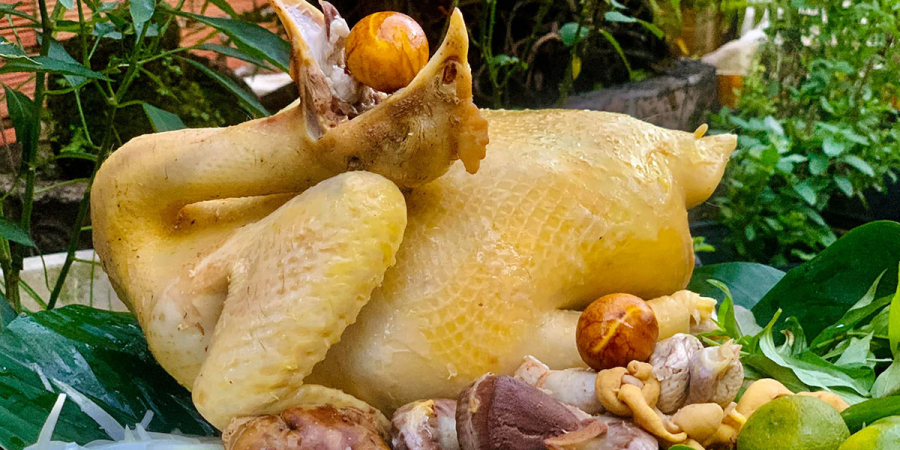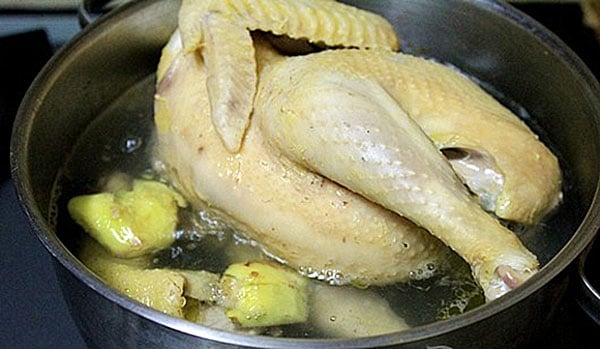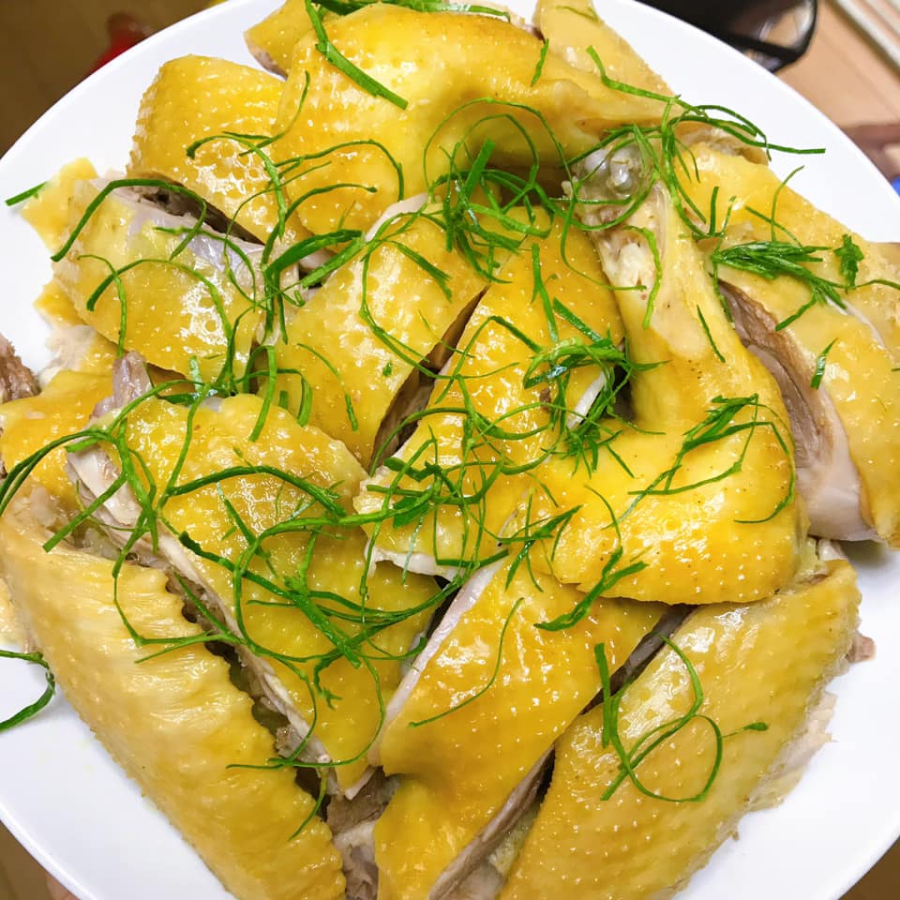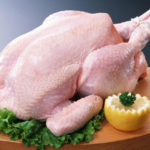Boiled chicken is the most delicious and popular dish, and it is also considered the easiest to make compared to braised chicken, fried chicken, or grilled chicken … However, not everyone knows how to boil chicken correctly.
Do not think that boiling chicken is just about putting it in boiling water and cooking it. Follow the 4 steps below, you can successfully boil chicken, with fresh, tender, juicy meat, neither tough nor fishy.

Boiling chicken in hot water
First, the chicken needs to be cleaned of all feathers and some internal organs. Then, you add water to the pot, add chopped spring onions and ginger to the water. Ginger and spring onions help eliminate the fishy smell of the chicken.
After a while, when the water is hot, you can put the chicken in. At this time, the water has a fragrant aroma of onions and ginger, helping to eliminate the fishy smell.
Many people put the chicken in when the water is cold, and some wait for the water to boil before putting the chicken in. Both methods are incorrect. Boiling the chicken in boiling water causes the skin to contract and crack, resulting in unattractive appearance of the boiled chicken.

Boiling chicken requires dipping it in and out 3 times
After putting the chicken in the hot water, you need to quickly lift the chicken by its neck, wait for 30 seconds and then put it back in, then take it out and put it back in. Repeat this process 3 times.
This will help the chicken “get used to” hot water, so the skin doesn’t break and the meat tastes better.
After that, cover the pot and simmer for another 20 minutes. After the chicken is cooked, you need to put it in a cold water bath. This makes the chicken skin crispier, and the chicken skin also has a bright and beautiful color, making it more appetizing.
Seasoning when boiling chicken
Many people mistakenly believe that when preparing chicken, they need to add many spices to remove the fishy smell and enhance the aroma of the dish.
In fact, this is very mistaken. Delicious chicken mainly relies on its original flavor. If you add too many spices, it will change the flavor and make the chicken less tasty.
When boiling chicken, you can add a few slices of ginger, a few sprigs of spring onions to remove the fishy smell, and at most add a little salt.
Boiling time for chicken
Chicken meat is very tender, so you don’t need to boil it for too long. If you boil the chicken for too long, it will lose its delicious taste, and the chicken will become tough and dry.
When boiling, pay attention to the height and width of the pot, which should be equivalent to the size of the chicken. If the chicken weighs from 1.5 to 2 kg, you can choose a pot with a diameter of 28 cm, which is suitable.
On the contrary, if you choose a pot that is too large, the chicken will shrink and not look beautiful, and vice versa, boiling the chicken in a pot that is too small will result in uneven cooking.
You should bring the water to a simmer, then reduce the heat. If you use too high heat, the chicken will cook faster, but the skin will contract and crack, resulting in unattractive appearance. On the other hand, if the chicken is boiled too long, the skin will become tender, and if boiled too quickly, the meat and bones will turn red and not delicious. You should choose the appropriate boiling time of 20-30 minutes.

Small tip when boiling chicken:
While boiling the chicken, take the chicken fat from the abdomen and neck to a pan and render the fat.
Note that when you first put the fat in the pan, cover the pan so that fat and water don’t splatter. Keep the heat medium, so that when you can uncover the pan, turn the heat down low so the fat won’t burn.
Take about 20 – 30ml of rendered chicken fat and mix it with turmeric to spread it on the chicken. This is the secret to having boiled chicken with a shiny yellow skin.
+ If using fresh turmeric, after skimming off the fat, scoop out the turmeric, then crush and put it in the pan and sauté for another 30 seconds to 1 minute, then turn off the heat and use the rendered fat to spread on the chicken.
+ If using turmeric powder, put the turmeric powder in a small bowl or dish, then pour the hot rendered fat over it, mix well and let it sit. Don’t cook the turmeric powder like with fresh turmeric, as it will burn.
– Wait until the fat has settled, use the inner layer of fat to baste the chicken, the chicken will turn yellow, without a strong turmeric smell (like putting turmeric directly into the boiling water, it will make the broth bitter…)
– After removing the boiled chicken, let it drain slightly, then use the remaining fat to baste the chicken, the chicken will have a beautiful appearance, and when you cut it, it will be very appealing.
To get a beautiful cut of chicken: Let the chicken cool completely before cutting, leave it in the refrigerator for 30 minutes – 1 hour before cutting, it will result in a more beautiful cut. If there is excess chicken fat, you can chop it up and store it to sauté vegetables or cook chicken rice for a delicious flavor.
To make the boiled chicken have a shiny and juicy yellow skin, after removing the chicken, immediately immerse it in boiling water to cool it down, preferably cold water. When the chicken is completely cool, you can take it out of the pot. If you don’t do this, the chicken skin will become dry and dull.
After that, let the meat drain a bit, take a piece of turmeric, peel it, crush it, and squeeze out the juice to mix with the rendered chicken fat. Spread a layer of this mixture on the chicken, and you will have boiled chicken with a shiny yellow and smooth skin.





































